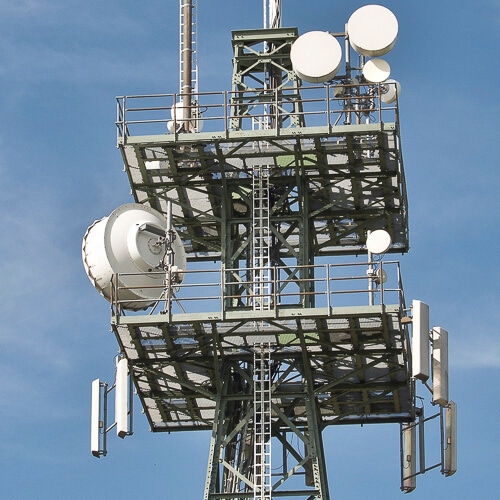US operator blames pandemic quarantine for missed FCC payments
Hilliary Communications was supposed to make a down payment on September 17, 2020, but it didn't until October 8, 2020. The reason? Executives were 'operating on a limited capacity while quarantined.'

According to the executives at Hilliary Communications – a small US telecom operator serving tens of thousands of customers across parts of Oklahoma, Texas and Iowa – the coronavirus pandemic is to blame for its late payment to the FCC.
But the agency isn't buying that argument.
"The fact that Hilliary's key personnel were either afflicted by illness or exposed to it is not novel nor is it necessarily unique or unexpected six months after the onset of the COVID-19 pandemic," the agency wrote in a recent report. "To that end, we note that the [CBRS spectrum] Auction 105 Procedures Public Notice was released and available to prospective bidders more than six months before the eventual down payment deadline, and more than 200 winning bidders met that deadline, despite the ongoing pandemic. We conclude that Hilliary's failure to meet its first post-auction [payment] obligation does not constitute a special circumstance that warrants a deviation from our general rule."
Hilliary Communications was the winning bidder for 42 CBRS spectrum licenses across 21 counties, with net winning bids totaling around $805,000. The company was among dozens of other telecom network operators that participated in the FCC's 3.5GHz CBRS spectrum auction (dubbed Auction 105 by the agency) in 2020. Verizon, Dish Network, Comcast and Cox Communications were among the big winners in the auction. But there were plenty of other, smaller bidders like Hilliary.
For its part, Hilliary walked away from the auction with 3.5GHz licenses covering parts of Texas and Oklahoma. The company told the FCC it is "actively exploring" using its CBRS licenses to build networks covering Native American lands in Oklahoma.
Figure 1:  (Source: Pixabay)
(Source: Pixabay)
However, after the CBRS auction closed on September 2, 2020, Hilliary and other winners were required to make an initial down payment by September 17, 2020. Hilliary didn't make it.
"Hilliary claims that, in the second week of September, its Chief Financial Officer (CFO) and one other 'principal executive' learned that they had been exposed to the coronavirus 'and immediately underwent self-quarantine outside of [Hilliary's] offices' for two weeks each,'" according to the FCC. "Further, Hilliary submits that 'at least four members of [its] executive and senior management group . . . were operating on a limited capacity while quarantined outside the office and/or tending to health and family issues.'"
"Hilliary states that its officers' September 2020 quarantines curtailed its ability to execute routine business operations and meet a series of FCC auction deadlines," the agency wrote, noting that Hilliary blamed "miscommunication between the CFO, its staff, and its bank regarding its down payment," and that the company made its down payment on October 8, 2020.
Hilliary applied for a waiver from the FCC's payment deadlines. In a report issued this week, the agency rejected that request and said it will assess an "interim default payment" of around $161,000.
In its report, the agency pointed to other instances where it has rejected waiver requests in other spectrum auctions. For example, an FM spectrum winner blamed a "family emergency" for a missed payment, while another spectrum winner claimed to be "unaware" of the agency's deadlines because of its chief executive's medical treatments. In both cases the FCC rejected those waiver requests too.
"While we are aware of the burdens and challenges imposed by the COVID-19 pandemic, we are not persuaded that Hilliary has presented any unique facts or circumstances that merit waiving its obligation to have timely submitted its down payment by the commission's September 17, 2020, deadline," wrote the FCC.
Verizon is using its CBRS spectrum to reinforce its 4G and 5G networks, while Comcast has suggested it might eventually build a small-scale mobile network with its own holdings for its Xfinity Mobile offering. Dish, meanwhile, has said it plans to initially use its CBRS winnings for private wireless networks.
Related posts:
— Mike Dano, Editorial Director, 5G & Mobile Strategies, Light Reading | @mikeddano
About the Author(s)
You May Also Like











